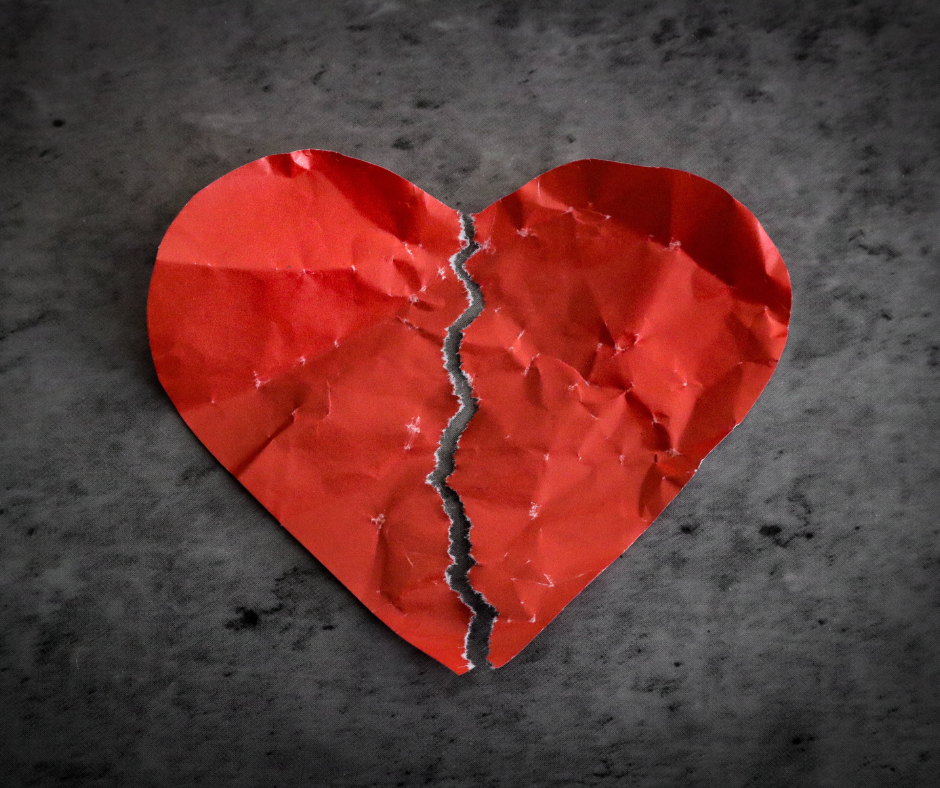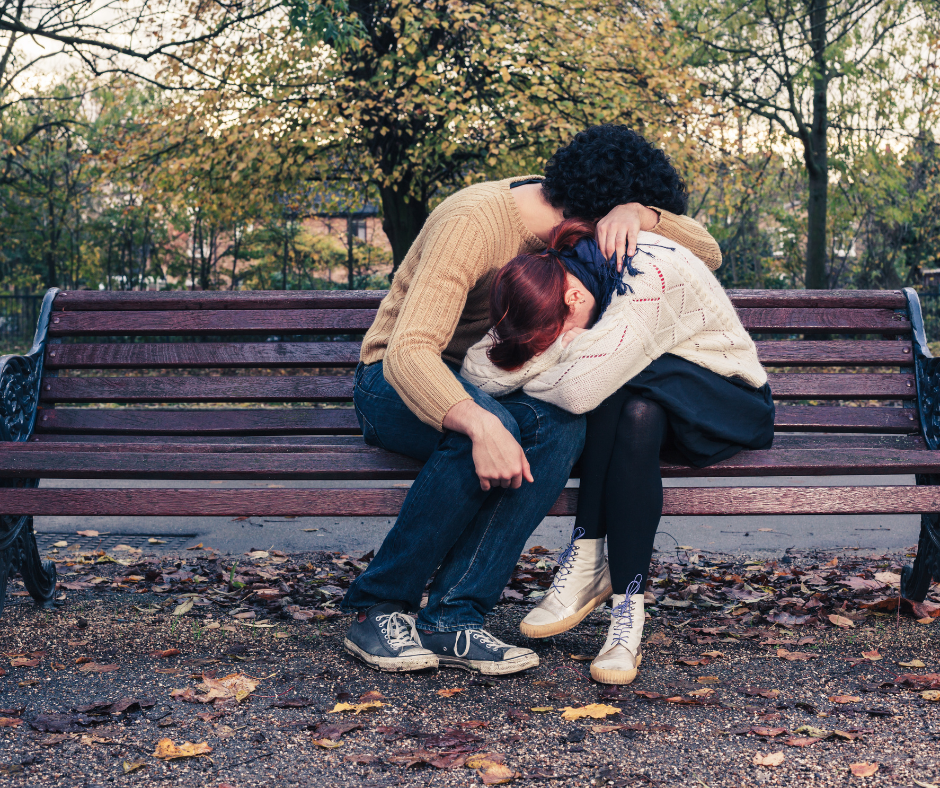“Are We Still Friends?”: The Awkward Ambiguity of Modern Adult Friendships
You used to text all the time. You had regular coffee dates, inside jokes, spontaneous “what are you doing tonight” hangouts. But lately? They’ve been quiet. The messages are shorter. Plans fall through. And you’re left wondering… Did I do something wrong? Are we still even friends?
If this feels familiar, you’re not alone.
One of the most common — and quietly painful — experiences in modern adulthood is the slow fade of a friendship. No fight. No closure. Just... awkward silence and subtle distance. And it leaves a lot of us stuck in limbo: grieving something we can’t name, unsure whether to reach out or just let it go.
Let’s talk about it.

Friendship Fadeouts: The New Ghosting?
In a world where everyone’s busy, burned out, and overstimulated, friendships often fall into a weird gray zone. Unlike romantic relationships, where we’re expected to define the relationship at some point, friendships don’t usually come with clear milestones or breakup conversations. So when someone pulls away, it can be deeply confusing.
You might find yourself overanalyzing:
- “Did I say something wrong?”
- “Should I check in or just wait?”
- “Is this normal distance or actual disconnection?”
The truth is, ghosting isn’t just a dating problem anymore. It’s become a quiet epidemic in adult friendships — not always out of malice, but often out of emotional exhaustion, poor communication skills, or an inability to tolerate discomfort.

Why It Hurts So Much
When a friend pulls away without explanation, it taps into some of our deepest relational fears: abandonment, rejection, not being “enough.” Our brains are wired to seek connection and coherence. When a bond suddenly feels off, the lack of clarity can activate our nervous system into full-on alert mode.
Psychologically, ambiguous loss — a term coined by therapist Pauline Boss — is one of the most stressful kinds of grief. You don’t have closure, but you also don’t have the relationship you once did. You’re grieving in silence, without permission or rituals.
And that hurts more than most people want to admit.
15 Therapist-Approved Tips for Navigating Shifting Friendships
1. Pause Before You Spiral
When a friend starts to feel distant, your brain naturally tries to protect you by jumping to conclusions. But often, that quick mental leap is rooted in anxiety — not truth. Before assuming the worst, slow down and pause. Acknowledge the part of you that feels panicked, then try to separate fact from story. You might realize you’re grieving a change, not reacting to rejection.
- Try the “facts vs. feelings” journaling prompt: What actually happened vs. what it made you feel
- Use grounding techniques like deep breathing before reacting
- Repeat to yourself: “Confusion doesn’t always mean conflict”
- Reach out to a therapist or trusted friend to reality-check the spiral

2. Reach Out With Curiosity, Not Panic
It’s okay to check in — but how you do it matters. A panicked “Are you mad at me?” might push someone further away, but a gentle “Hey, I’ve been thinking of you. How are things?” opens a door. Approach with warmth, not accusation. You’re offering connection, not demanding it.
- Start with care, not confrontation: “I miss talking to you. No pressure, just checking in.”
- Avoid asking for immediate clarification or explanations
- Focus on their wellbeing rather than your fear
- Be okay with a delayed or uncertain response
3. Don’t Personalize Distance
People pull away for reasons that have nothing to do with you: burnout, family issues, mental health struggles. But when you’re the one left wondering, it’s easy to internalize the shift. Instead, remind yourself that distance isn’t always a reflection of your worth — sometimes it’s about capacity, not care.
- Write out what you think their silence means, then challenge it
- Remind yourself: “They might be going through something invisible”
- Say: “This hurts, but it might not be about me”
- Reflect on times you’ve needed space too

4. Allow Yourself to Grieve What’s Changed
When a friendship fades, even slowly, it’s a loss. But because there’s often no official “end,” many people minimize it. Don’t. Give yourself permission to feel what you feel. Grieve the shared language, the spontaneous calls, the little rituals that gave your days texture. That grief is real.
- Create a memory jar or letter to honor what you had
- Light a candle or play a song that represents the friendship
- Talk to someone who won’t dismiss your grief
- Practice radical self-compassion as you process
5. Reframe the Relationship — Don’t Force a Revival
Not all friendships are meant to return to what they once were. And that doesn’t mean they failed. Instead of trying to force reconnection, ask: Is there a gentler version of this friendship that could still exist? Allow it to take a new shape — maybe less frequent, less intense, but still meaningful.
- Shift from “best friend” to “once-in-a-while check-in”
- Drop the pressure to text every day
- Accept that some seasons require distance
- Celebrate small touch points as enough

6. Let Other Relationships Nourish You
When one connection fades, it’s tempting to hyper-focus on it. But often, expanding your circle — even a little — can soften the sting. New or rekindled relationships can surprise you with depth, warmth, and ease. Let yourself be open to fresh dynamics, even if they don’t look like what you lost.
- Reconnect with someone you haven’t talked to in months
- Try a local group, club, or online community
- Say yes to an invitation you’d normally decline
- Be present in your everyday interactions (like with a barista or coworker)
7. Set Boundaries With Your Nostalgia
Looking back can be bittersweet. But when it turns into emotional rumination — endlessly replaying texts or stalking old posts — it becomes painful. You’re allowed to set boundaries with your memories. Missing someone doesn’t mean you need to keep reactivating the pain.
- Mute their social media for a while if needed
- Archive old messages to create distance
- Tell yourself: “I can honor the past without living in it”
- Distract your hands with a grounding activity when tempted to scroll

8. Don’t Be Ashamed for Caring
We live in a world where being the one who “cares more” is seen as weak or embarrassing. It’s not. Feeling deeply is not a flaw. If you’re hurt, confused, or sad — let yourself feel it. You don’t have to tough it out just to seem chill.
- Own your sensitivity: “I cared. That makes me human.”
- Surround yourself with people who value emotional honesty
- Use your journal or therapist as safe space for the messy parts
- Stop apologizing for being affected
9. Look for Relationship Patterns
If this type of friendship confusion keeps happening, it’s worth exploring. Maybe you tend to over-function. Maybe you avoid conflict until it’s too late. Zooming out can give you insight — and power to change the pattern.
- Track past friendship dynamics: What role did you often play?
- Reflect on boundaries — did you have any?
- Notice what kind of people you tend to feel drawn to
- Ask: “What does this situation remind me of?”
10. Own the Ways You Might Have Faded Too
Sometimes, we’re the ones who pulled away — and didn’t explain. We ghosted out of guilt or discomfort. We forgot to check in. Owning this isn’t about self-blame — it’s about honesty. Take a breath. Ask yourself: “Have I been avoiding something too?”
- Write down any friendships you feel distant from
- Choose one person to check in with honestly
- Offer clarity if you’ve been unclear
- Apologize if needed — without over-explaining or spiraling

11. Practice “Name It to Tame It”
Emotions feel less overwhelming when you name them. Saying “This is grief” or “This is fear” helps you step outside of the emotional storm and regain clarity. It also gives your nervous system the message that you’re safe enough to observe your experience.
- Use voice notes or journaling to express feelings out loud
- Try: “I feel anxious, but I’m not danger”
- Connect the emotion to a body sensation: “This sadness is sitting in my chest”
- Use grounding tools to support the body while you name the feeling
12. Find Comfort in “Small Friendships”
Not every relationship has to be your ride-or-die. The woman you see at the gym, the neighbor who always smiles, the barista who remembers your order — these micro-connections also count. Let yourself be nourished by them.
- Make small talk with intention
- Ask someone how their day really is
- Offer a compliment or thank-you just because
- Treat mini connections like sips of water: small but refreshing

13. Say What You Actually Want
If a friendship matters to you — and you’re unsure where it stands — be honest. Say the thing. Not in a way that demands, but in a way that reveals your heart. It’s brave to express longing. And sometimes, it brings people back in.
- “I miss you. I’d love to talk soon.”
- “Our friendship means a lot. Want to grab coffee?”
- “Not sure where we’re at, but I’d love to reconnect if you’re open to it.”
- Honor the silence if there’s no reply — but feel proud for reaching out
14. Practice Maintenance, Not Perfection
Friendship doesn’t require constant contact — but it does need care. A quick message. A random meme. A “thinking of you” text. These little acts add up. And they feel less overwhelming than trying to make grand gestures all the time.
- Keep a “friendship reminders” note on your phone
- Set gentle calendar nudges to check in with people
- Send voice notes or gifs when you’re too tired to type
- Let go of the idea that you have to be “on” to connect
15. Accept That Some Friendships Are Seasonal — And That’s Okay
It’s one of the hardest truths to hold: some people aren’t forever people. But that doesn’t mean the connection wasn’t real. Or meaningful. Or enough. Some friends walk beside us for a while, then quietly part. Let that be okay. Let that be sacred.
- Say goodbye internally, even if they don’t say it aloud
- Hold gratitude for what you shared
- Trust that making space invites new connections
- Let endings be gentle, not dramatic

When Friendship Loss Feels Like Identity Loss
Sometimes when a friendship fades, it’s not just the person you miss — it’s who you were with them. The inside jokes, the language only you two spoke, the version of yourself that only existed in their presence. That’s what makes some endings feel so hollow. You’re not just grieving the loss of a connection. You’re grieving a you that no longer gets to exist in that same dynamic. And that’s real.
It can be helpful to reflect on what parts of you came alive in that friendship — not to hold on tighter, but to carry those parts with you as you evolve. The way they made you laugh, or the part of you that felt free and unfiltered around them? That part is still yours. You get to bring it forward, even if they’re no longer beside you.
Holding Space for Ambiguous Endings
Unlike breakups or formal goodbyes, many friendships end with a slow fade — no closure, no explanation, just silence. That ambiguity can feel maddening. It’s hard to move on from something that technically never ended. But part of healing is learning to hold that grey area. Not everything in life wraps up neatly. Some relationships dissolve without drama, just a quiet shift in energy, priorities, or timing.
Instead of forcing yourself to find meaning in someone’s silence, focus on what you need to feel whole. Maybe that means writing an unsent letter. Maybe it means lighting a candle, saying thank you, and releasing the narrative. You don’t need their clarity to offer yourself closure.

Letting Friendship Be Messy, Tender, and Real
At KMA Therapy, we understand that friendship breakups and fades can feel even more painful than romantic ones — and that adult friendship is complicated terrain. Whether you're grieving a friendship that's gone quiet, trying to show up better in your own relationships, or learning to trust people again, our therapists are here to help.
You deserve friendships where you don’t have to wonder where you stand.
You deserve the kind of connection that doesn’t leave you questioning your worth.
And most of all? You deserve to feel like yourself in the presence of others.
Let’s navigate the complexity of modern friendship — together.
Book your first free 15 minute introductory call today!






